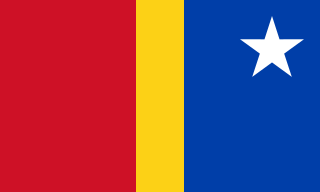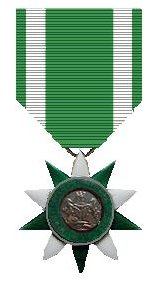
Ado Bayero CFR, LLD, JP was the Emir of Kano from 1963 to 2014.

Katagum is a town, a local government area and a traditional emirate in Bauchi State of north eastern Nigeria. The town is located on the northern bank of the Jama'are River, which is a tributary of the Hadejia. Most of the inhabitants are peoples from the Fulani, Kanuri, Karai-karai and Hausa tribes. The chief agricultural products include peanuts (groundnuts), sorghum, millet, rice, cowpeas, cotton, indigo, and gum arabic. Livestock include horses, cattle, goats, sheep, donkeys and a lot of poultry.
Lere is a Local Government Area and town in the southern part of Kaduna State, Nigeria. Lere town is located geographically at the latitude of 10 degrees 39 North and longitude of 8 degrees 57 East. It is the headquarters of the Lere Emirate. The town and its environs have an estimated population of about 553,290 (2016). Lere Local Government has an area of 2,634 km2 and a population of 339,740 at the 2006 census. Its headquarters are in the town of Saminaka. The postal code of the area is 811.
Sarafadeen Tunji Isola is a Nigerian politician who formerly served as the Nigerian High Commissioner to the United Kingdom. He was appointed to the position by President by Muhammadu Buhari in January 2021 and recalled a year later, on 2 September 2023, by President Bola Tinubu, alongside other Nigerian ambassadors and replaced by Dr. Cyprian T. Heen.
Alhaji Mohammed Awwal Ibrahim is a Nigerian traditional ruler who served as governor of Niger State from October 1979 to December 1983 during the Nigerian Second Republic. He was elected on the National Party of Nigeria (NPN) platform.
Alhaji Muhammadu Abali Ibn Muhammadu Idrissa was appointed 13th Emir, or traditional ruler, of the Fika Emirate on 16 March 2009. The emir's palace is in Potiskum, Yobe State, Nigeria. The Emir is head of the Bole people.
Basheer Lado Garba Mohammed is a Nigerian businessman who was elected Senator for the Kano Central constituency of Kano State, Nigeria in the April 2011 national elections, running on the Peoples Democratic Party (PDP) platform.

Emmanuel Dangana Ocheja is a Nigerian Senator who represented Kogi East senatorial district in the National Assembly, and a member of the All Progressives Congress.

Ibrahim Dabo was the leader of the Fulani Sullubawa in Kano and founder of the eponymous Dabo dynasty. His progeny has lasted over two centuries reigning as Muslim rulers of the ancient city-state of Kano. The dynasty has become synonymous with the ancient city-state in affectionate sayings as "Kano ta Dabo Cigari". They have independently ruled the Kano Emirate from 1819 until the Battle of Kano in 1903 which as a result of British colonisation transformed into the Kano Emirate Council.

The Order of the Federal Republic (OFR) is one of two orders of merit, established by the Federal Republic of Nigeria in 1963. It is senior to the Order of the Niger.
Ibrahim Kolapo Sulu-Gambari ascended the throne as the 11th Emir of Ilorin and Chairman Kwara State Traditional Rulers Council since 1995 following the demise of his uncle, Mallam Aliyu AbdulKadir. He relinquished his position as the Presiding Justice of Court of Appeal, Lagos Division to become the Custodian of the Shehu Alimi dynasty. He is one of the 10 prominent traditional rulers in northern Nigeria.
Hajiya Nàja’atu Mohammed, also known as Naja'atu Bala Muhammad, is a Nigerian politician and activist. Her father was an associate of Aminu Kano.
Karshi is a town in Nigeria. It is located in the Federal Capital Territory, a satellite town situated in Abuja Municipal Area Council. Its geographical coordinates are 8° 49' 40" North, 7° 33' 0" East and its original name is Karshi. Karshi is about 38 km to Federal capital city of Abuja and 41 km from Karshi to Apo.
Alhaji Gidado Idris, was a Nigerian civil servant who served as the Secretary to the Government and Head of Service of the federation in Nigeria between the year 1995-1999, during the military regime of General Sani Abacha.
Ramatu Tijani Aliyu is a Nigerian politician who served as the Minister of State for the Federal Capital Territory (FCT). She was appointed by President Muhammadu Buhari on 21 August 2019 and served until 29 May 2023. Ramatu was previously the national woman leader of the All Nigeria Peoples Party (ANPP), later the All Progressive Congress (APC), after the party and other political parties merged (2014-2018).

New Karshi is a town in Karu Local Government Area of Nasarawa State, Nigeria, founded in the 1980s by Muhammadu Bako II. It is a semi-autonomous local government created out of Karu LGA as Karshi Development area with the administrative secretariat in Uke. Karshi has a local government chairman as its administrative head and a seat in the Nasarawa State House of Assembly. Emir of Karshi Emirate, Alhaji (Dr) Muhammadu Sani Bako III, a first class chief is the traditional head of New Karshi. It has a population of about 30,000 people. The predominant tribes are Gwandara, Gbagyi, Gade, Bassa and Hausa.
Alhaji (Dr) Umaru Sanda Ndayako, was the 12th Etsu Nupe from one of the ruling houses of Bida. His parents were Muhammadu Ndayako (CBE), the late 9th Etsu Nupe and Aisha Nuadoro.
Usman Alkali Baba CFR was the 21st Nigerian Inspector General of Police. He was appointed by the President of Nigeria Muhammadu Buhari to replace Mohammed Adamu who retired from Nigeria Police Force in February 2021. The Police Council on Friday, June 4, 2021, confirmed the appointment of Alkali Usman Baba as the substantive Inspector General of Police.
Sheikh Ahmad Muhammad Ibrahim Bamba was a Ghanaian Islamic scholar. He worked as a lecturer at Bayero University, Kano. He taught Hadith Sahih al-Bukhari in his Mosque at Tudun Yola Kano State Nigeria. He was called Qala Haddasana, a phrase he mentioned often during his teaching.

Usman Musa Shugaba is a Nigerian Deputy Commissioner of Police. He has served in various key roles, including as an Aide-de-Camp (ADC) to the Governor of Kogi State, ADC to former First Lady Aisha Buhari, and currently as the Chief Personal Security Officer (CPSO) to President Bola Ahmed Tinubu.






